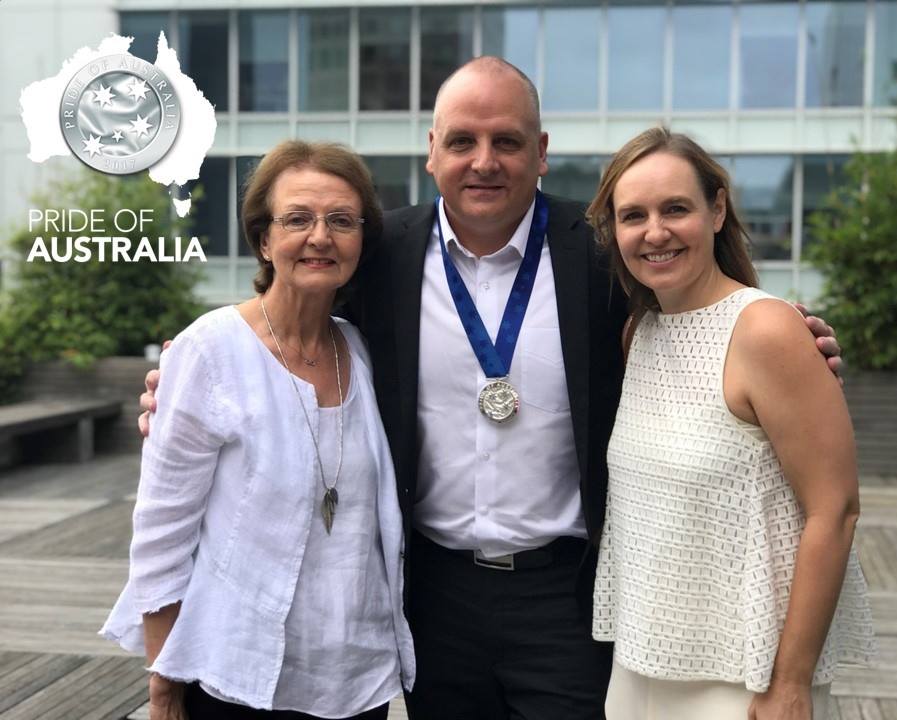
A CHARITY worker, teacher, school student and consumer adviser at the Royal Adelaide Hospital are the 2018 SA Pride of Australia winners.
The inspiring community-minded quartet are the stand out choices from dozens of nominations for the popular News Corp awards, devised 14 years ago to celebrate the spirit of those doing extraordinary things to help or save others.
Charity worker Rachael Zaltron founded Backpacks4SAKids in 2014 in memory of a friend who died before her dream of becoming a foster carer came true.
The charity transforms lives by providing assistance to children in care, homeless youth and families starting again after domestic violence incidents.

Ms Zaltron is one of two full-time employees, alongside 200 volunteers, who distribute more than 2500 backpacks annually.
“It’s the first award we’ve won so it’s very special,” the Ridgehaven resident said at the medal presentation at Keith Murdoch House yesterday. “It’s such an honour and an amazing acknowledgment of all the work our team have done.”
Harriette Rogers, 9, is keen to get her medal back to Seymour College to show her classmates, who supported her growing her hair long so it could be cut off and used to make wigs for children who had lost their hair to cancer.
After two years, 35cm needed to be trimmed.
“I’m thinking of doing it again but mum’s not too excited at the prospect of all the knots,” she said.
From Stirling, Harriette is organising a bike ride fund raiser to help add to the $3200 she has already raised for Canteen, a charity supporting children with cancer.
Brett Partington, a consumer adviser who started an online support group for families dealing with dementia, with more than 1200 members, paid tribute to his family, including mum Jan and sister Jane.
“When Dad (Bob) was diagnosed we were like the Brady Bunch … we gathered up and gave each other support,” the Woodside resident said. “We’ve been through hell but hoping to help others through this journey now.”
In response to family struggles with his father’s 10 year battle with Alzheimer’s Disease, Brett founded online support group ‘Dementia Downunder’ – backed by professionals – that helps Australian families dealing with dementia.
“Knowing they thought that much of me was special enough and winning a medal was not in mind,” the Prospect resident said.
“It’s a very nice medal … and going to go nicely next to the Kung Fu medal I’ve got, which is not quite the same quality.”
Source: Advertiser Newspaper (SA) March 1, 2018




 Facebook
Facebook Twitter
Twitter LinkedIn
LinkedIn